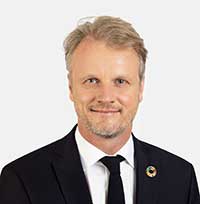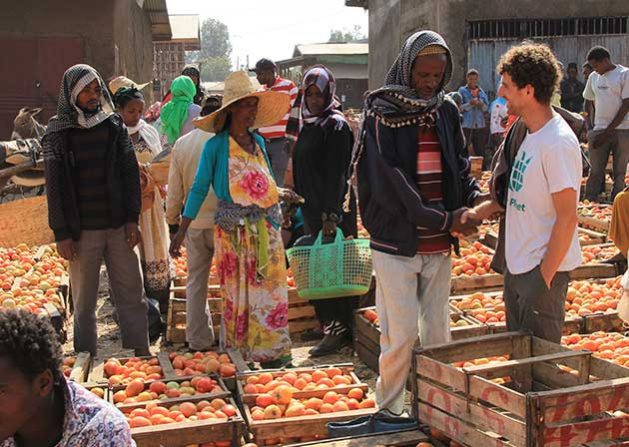Why Quality Seeds Are among the Most Valuable Currency in Climate Finance for Africa — Global Issues
VAUD, Switzerland, May 16 (IPS) – At long last, momentum is growing for an overdue rethink of climate finance and development assistance to support countries on the frontlines of the climate crisis.
But while investment, aid and compensation are all much needed, another form of currency is equally valuable for climate-vulnerable countries that are also highly dependent on small-scale agriculture: quality seeds.

The latest generation of seeds offers varieties adapted to specific climatic circumstances to provide more reliable food production, as well as improved incomes and livelihoods for farmers, having boosted productivity by 20 per cent for nine key crops in the European Union over 15 years.
Yet improved varieties of many of the world’s staple cereals, vegetables and pulses are too often inaccessible for farmers in Africa, despite having some of the greatest exposure to climate extremes.
For instance, in East Africa, certified quality seed potatoes – which produce higher yields and greater resilience to climatic changes, pests, and diseases – account for just one per cent of all those planted by farmers.
By leveraging the advances and resources of the commercial seed sector – supported and scaled by public and NGO partners – the global community can ensure African farmers receive the tangible, long-term support they need to cope with the impacts of climate change.
To begin with, delivering the best varieties in combination with training in good agricultural practices for farmers can boost their yields and therefore incomes, allowing them to thrive despite the rising impact of climate change.
For example, non-profit Fair Planet coached more than 2,300 lead farmers in 65 Ethiopian villages and trained their regional extension agents in improved farming practices. With this training, farmers were able to quickly adopt and maximize their crop yields using locally tested and improved varieties of vegetables.
In total, some 75,000 smallholder farmers in the project’s regions subsequently tripled their vegetable production at a time when the Horn of Africa faced pressing food security challenges. As a result of an historic, ongoing drought, an estimated 22 million people are currently facing acute food insecurity across Ethiopia, Kenya, and Somalia.
According to an external evaluation, more than 95 per cent of households involved in Fair Planet’s work in Ethiopia – or roughly 485,000 people – benefitted from improved nutrition after the increased yields raised household incomes in just one production season by more than 25 per cent. This extra income provided farmers with a greater buffer against climate shocks, and more money to spend on health services and education for their families.
Opening up access to improved varieties of staple crops plays an important role in safeguarding food and nutrition security in the face of climate change, which could reduce levels of protein, iron and zinc in cereals by up to 10 per cent.
This is why the International Seed Federation (ISF), together with Fair Planet, is embarking on a five-year project to increase farmer choice of and access to quality seeds in Rwanda.
The aim is to benefit 84,000 Rwandan farmers by offering increased access to improved, high-quality vegetable, pulses, cereal, and potato varieties alongside downstream value chain projects training to support higher yields and incomes, and climate adaptation.
The final piece of the puzzle is to establish the policies and regulations needed to develop resilient and sustainable seed systems that benefit farmers. This requires policymakers to build an efficient and effective regulatory framework that provides reassurance to farmers that they are receiving the highest quality seed year after year, while also providing the long-term certainty likely to incentivize additional private sector investment.
Quality seeds are clearly the bedrock upon which productive and resilient farming systems are built, yet these technologies up to now remain out of reach for many of Africa’s farmers – one of the many significant challenges they face today.
By investing and collaborating to build resilient seed systems, the private sector can share more broadly the fruits of progress in global crop science through partnerships that ensure farmers receive seeds that are not only fit for purpose but fit for the future.
Improved seeds can then pay dividends by unlocking better productivity, incomes, and climate resilience for those on the frontlines who have for too long been underserved.
IPS UN Bureau
Follow @IPSNewsUNBureau
Follow IPS News UN Bureau on Instagram
© Inter Press Service (2023) — All Rights ReservedOriginal source: Inter Press Service
Check out our Latest News and Follow us at Facebook
Original Source







